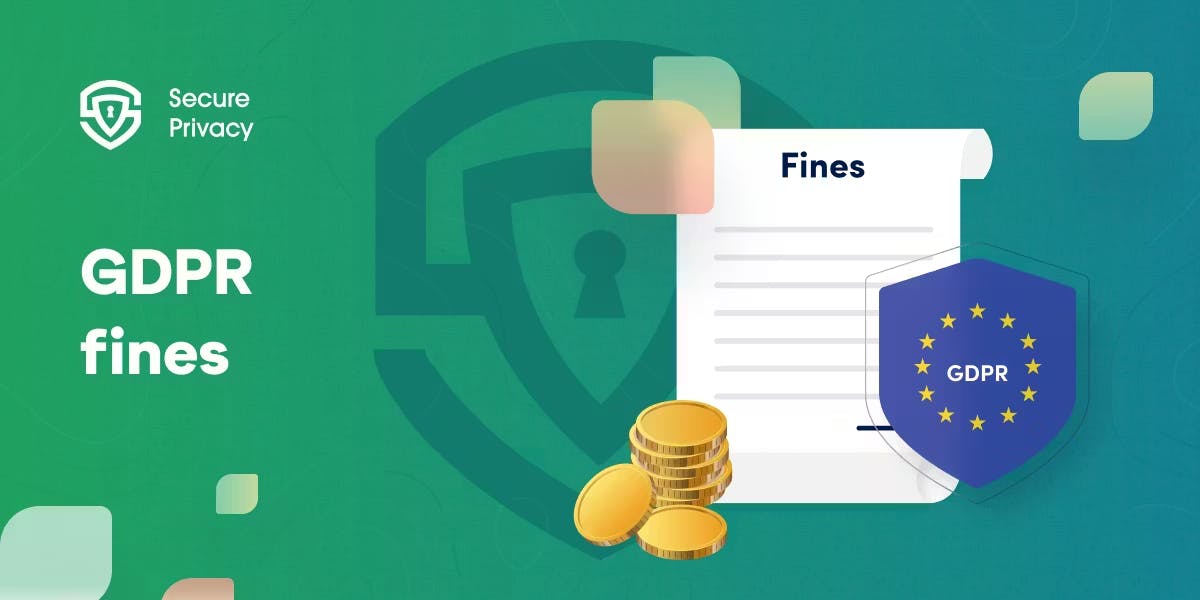Influencer Data Dark Patterns: Manipulation in the Creator Economy
Are you aware of how your data might be manipulated when engaging with influencer content? Understanding these tactics is essential for maintaining your digital autonomy in today's creator-driven media landscape.
The creator economy's explosive growth—projected to reach $480 billion by 2027—has been marred by the rise of dark patterns, deceptive design tactics that manipulate users into unintended actions.
From undisclosed data harvesting to psychological nudges in sponsored content, influencers and platforms increasingly exploit cognitive biases to maximize engagement and revenue.
Are you aware of how your data might be manipulated when engaging with influencer content? Understanding these tactics is essential for maintaining your digital autonomy in today's creator-driven landscape.
Defining Dark Patterns in the Creator Economy
Dark patterns in influencer ecosystems fall into three distinct categories, each designed to extract value from users through deception rather than transparent exchange.
Data Exploitation Tactics
Covert data collection has become increasingly sophisticated in influencer marketing. Giveaways or quizzes that appear to be harmless entertainment often harvest personal data such as email addresses, location information, and demographic details without clear consent.
A stark example emerged in TikTok's 2024 FTC settlement, which revealed influencers had partnered with brands to collect voter data via "personality tests" disguised as fun quizzes. These tests gathered political preferences and contact information while presenting themselves as casual entertainment.
Misleading opt-ins represent another common tactic, with pre-checked boxes for data sharing buried deep in partnership disclaimers or contest rules. Users often unknowingly agree to extensive data collection and sharing simply by participating in seemingly innocuous influencer promotions.
Engagement Manipulation
False urgency tactics create artificial pressure on consumers. Claims of "Only 3 left!" in affiliate posts—even for digital products with unlimited inventory—exploit fear of missing out (FOMO) to drive immediate purchase decisions.
Misdirection through "Swipe up" links often routes users to subscription traps instead of the promised content. What appears to be a link to a tutorial or resource becomes an entry point to recurring charges or unexpected data collection.
These tactics deliberately short-circuit rational decision-making by triggering emotional responses, leading users to take actions they wouldn't choose under less manipulative circumstances.
Authenticity Subversion
Undisclosed sponsorships remain a persistent issue despite regulatory attention. According to a 2025 EU study, 42% of micro-influencers fail to properly tag #ad posts, deliberately blurring the line between authentic opinions and paid promotions.
Astroturfing through bots or paid followers artificially inflates engagement metrics, misleading both brands about an influencer's reach and audiences about a product's popularity. This fabricated consensus creates false social proof that influences genuine users' perceptions and decisions.
These practices fundamentally undermine the trust relationship between creators and audiences by disguising commercial interests as authentic connection.
Regulatory Crackdowns
As awareness of these manipulative practices grows, regulatory bodies have begun taking significant enforcement actions.
FTC & GDPR Enforcement
The Federal Trade Commission has shown increasing willingness to penalize influencer marketing abuses. In 2024, the FTC imposed a $7.8 million fine against a beauty influencer collective for hiding data sales to third-party advertisers. This landmark case established that influencers—not just platforms or brands—can be held liable for deceptive data practices.
Under the GDPR, the "Right to Explanation" has been extended to influencer marketing, with EU users now demanding that creators disclose how their data trains affiliate recommendation algorithms. This transparency requirement has forced many influencers to rethink their data collection and processing approaches.
Platform Accountability
Major social platforms have implemented their own measures to combat dark patterns:
Instagram's 2025 Policy mandates real-time disclosure tags (like #PaidPartnership) that cannot be edited after publication. This prevents the common practice of temporarily including disclosures only to remove them later.
TikTok has implemented a "Dark Pattern" Ban that automatically flags posts using scarcity tactics such as fake countdown timers. This algorithmic enforcement complements human moderation to identify manipulative content.
These platform-level interventions represent an important recognition that individual enforcement against creators is insufficient without systemic safeguards.
Case Studies
Examining specific incidents reveals how these dark patterns operate in practice.
DNC Influencer Leak (2025)
A controversial leaked document revealed that politically-aligned influencers were paid to promote policy agendas without proper disclosures, mimicking tactics outlined in dark social marketing playbooks. These seemingly "authentic" posts used:
Emotional framing through personal stories designed to bypass ad skepticism. By presenting political messaging as personal experience, these campaigns circumvented users' natural wariness toward political advertisements.
Algorithm gaming by posting during low-competition hours to dominate feeds. This strategic timing maximized visibility while maintaining the appearance of organic content rather than coordinated messaging.
This case highlighted how dark patterns can undermine not just consumer protection but democratic discourse itself.
Sephora's "Beauty Quiz" Lawsuit
In another high-profile case, a major beauty retailer partnered with influencers to promote a quiz that collected sensitive skin data, which was later sold to insurance companies without adequate disclosure or consent.
The resulting $3.2 million settlement underscored GDPR's extraterritorial reach, as European users' data was involved despite the company's U.S. base. This case demonstrated how influencer-driven data collection can have consequences far beyond the immediate marketing campaign.
Psychological Mechanisms
The effectiveness of dark patterns stems from their exploitation of well-documented cognitive biases:
Default bias leads users to accept pre-selected options, making auto-subscription to newsletters after a purchase particularly effective. Most users will not expend the cognitive effort to change these defaults even when they don't align with their preferences.
Social proof tactics, such as fake "Trending" labels on affiliate products, leverage our natural tendency to look to others for guidance on decisions. When something appears popular, we're more likely to value it highly regardless of its intrinsic quality.
The scarcity heuristic, triggered by "Limited stock" alerts (even for digital products with unlimited inventory), creates artificial pressure by suggesting opportunities might be lost forever. This circumvents rational evaluation by activating primitive resource-acquisition instincts.
Understanding these mechanisms helps users recognize when their cognitive vulnerabilities are being targeted rather than their actual needs or interests.
Ethical & Business Consequences
The proliferation of dark patterns has significant implications for both consumers and businesses in the creator economy.
Trust Erosion
The relationship between influencers and their audiences is fundamentally built on trust. When that trust is violated through manipulative practices, the consequences can be severe and lasting. According to the 2025 Edelman Report, 61% of Gen Z users now distrust influencers who use hidden data practices.
This trust deficit extends beyond individual creators to affect entire platforms and brands. As consumers become more sophisticated about identifying manipulation, they increasingly avoid creators and platforms associated with deceptive tactics.
Brand Risk
Brands face substantial risk when associating with influencers who employ dark patterns. Research indicates that 78% of consumers boycott brands linked to manipulative influencers, making proper vetting of creator partnerships a business imperative rather than merely an ethical consideration.
This ripple effect demonstrates how dark patterns create lose-lose scenarios: consumers feel manipulated, influencers lose credibility, and brands suffer reputational damage and lost sales. The short-term gains in data collection or conversion rates ultimately undermine the ecosystem that enables influencer marketing to function.
Compliance Solutions
Various stakeholders in the creator economy can implement specific strategies to address dark patterns and ensure ethical practices.
For Influencers
Transparency tools have emerged to help creators maintain compliance without sacrificing effectiveness. Specialized platforms can auto-generate compliant captions that clearly disclose sponsorships and data collection practices in language that meets regulatory requirements.
Regular data audits have become essential for responsible creators. By systematically purging unused follower data, influencers can more easily meet CCPA/GDPR data requests while reducing their liability for data breaches or misuse.
Forward-thinking influencers are discovering that transparency can become a competitive advantage. When audiences know exactly what data is being collected and how it will be used, they often develop stronger trust and loyalty compared to creators with opaque practices.
For Platforms
Algorithmic scrutiny capabilities allow platforms to flag posts with abnormal engagement spikes that might indicate bot activity or other manipulation. These systems help maintain ecosystem integrity by identifying potentially deceptive content for human review.
Implementing consent layers that require explicit opt-ins for data-sharing features in creator dashboards ensures both influencers and their audiences understand what information is being collected and shared. These granular controls help prevent inadvertent violations while creating audit trails for compliance verification.
For Brands
Vetting standards for influencer partnerships have become increasingly sophisticated. Certification systems help screen potential partners for dark pattern history, protecting brands from association with manipulative practices that could damage their reputation.
Contract clauses that penalize creators for non-disclosure (such as forfeiting 20% of fees for compliance violations) create financial incentives for transparency. These provisions help align creator behavior with brand values and regulatory requirements.
Future Outlook
The landscape of influencer data practices continues to evolve rapidly, with several emerging trends likely to shape future developments.
AI Disclosure Laws
California's 2026 mandate will require clear labeling of AI-generated influencer content, addressing growing concerns about synthetic media in the creator economy. This regulation recognizes that audiences have a right to know when they're engaging with artificially generated content rather than authentic human expression.
Similar legislation is under consideration in other jurisdictions, potentially creating a global standard for AI transparency in influencer marketing. These requirements will add another layer of compliance for creators who incorporate artificial intelligence into their content production.
Blockchain Verification
Projects leveraging blockchain technology aim to create immutable records of sponsorship deals and data flows. These systems provide verifiable proof of disclosure and consent, helping influencers demonstrate compliance while giving audiences confidence in transparency claims.
By creating tamper-proof documentation of who has access to audience data and under what terms, these solutions address a core challenge in the current ecosystem: the difficulty of verifying whether stated data practices match actual behavior.
Enhanced User Controls
Next-generation platforms are developing features that give users more granular control over their data when interacting with creator content. These include:
- Temporary data sharing that automatically expires after specific timeframes
- Selective consent options that allow engagement without full data access
- Personal data vaults that centralize permission management across multiple creators
These innovations aim to shift power dynamics back toward users while still enabling the personalization and engagement that drive the creator economy.
Building a More Ethical Creator Ecosystem
As dark patterns become more intricate, regulators and platforms continue playing catch-up. The most sustainable path forward lies in recognizing that transparency and user respect create long-term value for all stakeholders in the creator economy.
Influencers who prioritize ethical data practices are discovering a competitive advantage in increasingly crowded markets. Initiatives like MrBeast's 2025 "Open Sponsorship" program, which provides complete transparency about compensation and data usage, demonstrate how ethical leadership can enhance rather than undermine creator success.
For businesses, ethical creator partnerships aren't just a compliance requirement—they represent a strategic advantage in the trust economy. As consumers become more discerning about how their attention and data are monetized, brands that respect these boundaries will build stronger relationships and more sustainable engagement.
The future of the creator economy depends on rebuilding trust through transparent, ethical practices that respect user autonomy. By rejecting manipulative dark patterns in favor of honest engagement, the industry can sustain its growth while creating value for all participants—creators, platforms, brands, and most importantly, the audiences who make it all possible.
Get Started For Free with the
#1 Cookie Consent Platform.
No credit card required

EU AI Act for CTOs: What Engineering Teams Must Build, Document, and Operationalize
Your product team ships a new AI-powered hiring screening feature. It ranks candidates automatically based on CV data. It is running in production across three enterprise clients in Germany, France, and the Netherlands. Nobody ran a risk classification exercise before launch. There is no technical documentation file. The logging infrastructure captures model outputs but not the decision logic. You have no human override mechanism.

GDPR Fines and Penalties Explained: Calculation, Enforcement Trends, and Risk Mitigation
Your legal team forwards you a letter from a supervisory authority. A data subject complaint has triggered a formal investigation. Your company processed personal data without a valid lawful basis six months ago — a decision made by a product manager who didn't loop in privacy counsel. Now you're looking at a potential Tier 2 fine, which means up to €20 million or 4 percent of your annual global turnover, whichever is greater. You have thirty days to respond.
- GDPR

Privacy Governance for Financial Services: An Operational Framework for Banks and Fintech
Your compliance team has documented your GDPR obligations. But who monitors whether those obligations are being met on Tuesday afternoon when a new vendor API goes live?
- Privacy Governance
- Fintech

